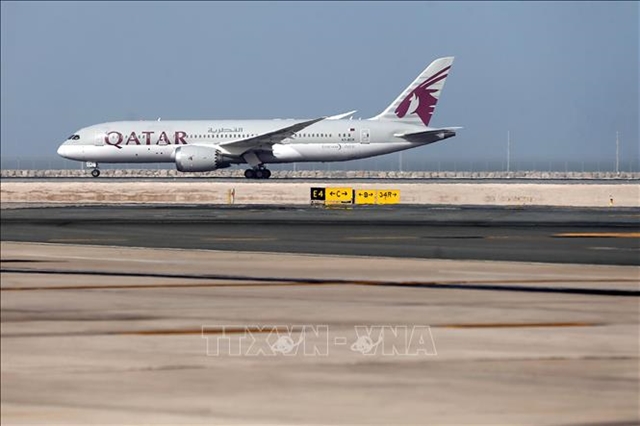 Economy
Economy

Vietnamese companies should export seafood and other farm produce via e-commerce to China to meet the market’s increasing demand for high-quality goods, experts have recommended.
 |
| Participants at a meeting in HCM City on Thursday discuss the importance of exporting Vietnamese seafood to China through official channels. — VNS Photo Bồ Xuân Hiệp |
HCM CITY — Vietnamese companies should export seafood and other farm produce via e-commerce to China to meet the market’s increasing demand for high-quality goods, experts have recommended.
Speaking at a meeting held on Thursday in HCM City, Cao Lâm Viên, vice chairman of the HCM City Business Association of High-Quality Vietnamese Products, said that purchasing power in China had risen dramatically, with average income last year reaching nearly US$10,000 per person.
In big cities like Beijing and Tianjin, the average income is up to $20,000 per person per year.
Trương Đình Hòe, secretary general of Việt Nam Association of Seafood Exporters and Producers (VASEP), said China was now a major seafood import market with diverse needs and higher quality requirements. “They prefer imported products and naturally caught products.”
China is currently reducing aquaculture production due to environmental issues, and is lowering import tariffs for officially exported Vietnamese seafood.
Viên said that bilateral trade between the two countries had been conducted mostly through unofficial cross-border transactions over the past 30 years.
However, unofficial exports over the border to China are facing technical barriers since the two nations have agreed to limit them and increase official exports.
Unofficial exports could be risky in terms of payments as well as quality and quantity of goods, he said, adding that China had tightened quality norms and origin traceability.
Việt Nam’s farm produce exports to China have faced stiff competition from other exporting countries in terms of quality, price and branding.
Vietnamese enterprises must also conform to new Chinese requirements for quality and traceability as well as Chinese regulations and standards on packaging and labeling, in addition to improving added value, Viên noted.
China is the world’s largest importer of agricultural products, accounting for 10 per cent of global imports, and its imports are growing at 8.8 per cent annually.
It accounted for 70 per cent of Việt Nam’s agricultural exports last year.
According to the General Department of Việt Nam Customs, Việt Nam exports about $1.2-1.3 billion worth of seafood to China each year.
Việt Nam is China’s third largest seafood exporter, while China is Việt Nam’s fourth largest seafood export market. — VNS




